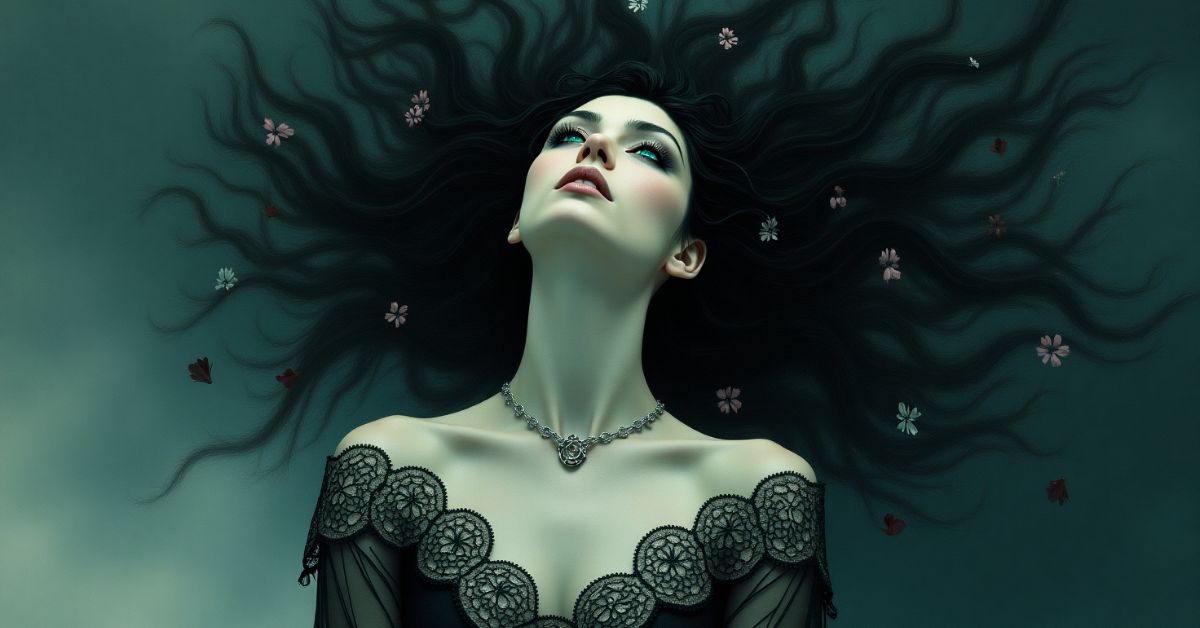47 Metaphors for Death offers a fresh perspective on a topic that’s often hard to talk about. Death can feel like a heavy and mysterious concept, but through these metaphors, you’ll find powerful and relatable ways to understand it.
Imagine viewing death not as an end, but as a journey, a fading light, or even the final page of a story. In this article, you’ll explore 47 unique metaphors that make the idea of death more approachable and meaningful. Keep reading these metaphors will not only change how you think about death but also help you find peace and clarity.
1. Crossing the River
- Meaning: This metaphor represents death as a journey from one side to the other, symbolizing the passage from life to the unknown.
- In a Sentence: “After a long struggle with illness, he finally crossed the river.”
- Other Ways to Say: Passing on, Crossing over, Journeying into the next world
2. Kicking the Bucket
- Meaning: A lighthearted and somewhat humorous expression for death, derived from the idea of a bucket being kicked over, symbolizing the end.
- In a Sentence: “He lived a full life before he kicked the bucket.”
- Other Ways to Say: Biting the dust, Meeting your maker, Pushing up daisies
3. The Final Curtain
- Meaning: A theatrical metaphor, suggesting death as the end of a play when the final curtain falls.
- In a Sentence: “She took her last breath just as the final curtain came down.”
- Other Ways to Say: The last act, The end of the show, Closing time
4. Taking the Long Sleep
- Meaning: Describes death as an eternal rest, where one never wakes up.
- In a Sentence: “He has taken the long sleep after a brave fight with cancer.”
- Other Ways to Say: Eternal rest, The big sleep, Sleeping forever
5. Falling Asleep
- Meaning: This metaphor suggests that death is like a peaceful sleep from which you don’t awaken.
- In a Sentence: “She fell asleep peacefully in her sleep, surrounded by family.”
- Other Ways to Say: Drifting off, Entering eternal rest, Resting in peace
6. Meeting Your Maker
- Meaning: A reference to the idea of meeting God or a higher power after death.
- In a Sentence: “After living a life full of good deeds, he was ready to meet his maker.”
- Other Ways to Say: Going to a better place, Answering the call, Returning home
7. The Great Beyond
- Meaning: Refers to the unknown realm or afterlife that is believed to exist beyond death.
- In a Sentence: “His passing left us wondering about the great beyond.”
- Other Ways to Say: The other side, The afterlife, The next world
8. A Final Voyage
- Meaning: A metaphor likening death to a journey or trip that one takes alone.
- In a Sentence: “She embarked on her final voyage, leaving her loved ones behind.”
- Other Ways to Say: A last journey, Sailing to the unknown, Setting sail for eternity
9. The End of the Road
- Meaning: Suggests that life is a journey and death is the final destination.
- In a Sentence: “After many years of hardship, he finally reached the end of the road.”
- Other Ways to Say: The final stop, Reaching the finish line, The last chapter
10. The Light at the End of the Tunnel
- Meaning: Often used to describe death as the peaceful resolution at the end of a difficult journey.
- In a Sentence: “After months of pain, he saw the light at the end of the tunnel.”
- Other Ways to Say: The final release, The last breath, A peaceful end
11. A Closed Book
- Meaning: This metaphor compares death to a book that is closed for the last time, symbolizing the end of a person’s story.
- In a Sentence: “Her life was a beautiful story, but now the book is closed.”
- Other Ways to Say: A finished story, The final chapter, The book is closed
12. A Quiet Departure
- Meaning: Refers to death as a calm and peaceful exit, with no noise or fanfare.
- In a Sentence: “He made a quiet departure, slipping away in the night.”
- Other Ways to Say: A peaceful passing, A gentle exit, Fading away quietly
13. Taking a Bow
- Meaning: A metaphor inspired by actors taking a bow after their final performance, symbolizing the end of life.
- In a Sentence: “He took a bow after living a full, accomplished life.”
- Other Ways to Say: The last bow, A final salute, Saying goodbye
14. A Butterfly’s Flight
- Meaning: Describes death as a delicate and graceful transition, like a butterfly taking flight.
- In a Sentence: “Her soul took flight like a butterfly, leaving behind a legacy of love.”
- Other Ways to Say: Flying away, Taking wing, A gentle departure
15. Blowing Out the Candle
- Meaning: Compares life to a candle that eventually burns out, symbolizing the end of existence.
- In a Sentence: “The candle of his life was blown out too soon.”
- Other Ways to Say: Extinguishing the flame, The light dims, Flickering out
16. The Last Breath
- Meaning: Refers directly to the final exhale of life, marking the end of existence.
- In a Sentence: “He took his last breath while surrounded by loved ones.”
- Other Ways to Say: The final exhale, The last gasp, A final sigh
17. A Final Resting Place
- Meaning: A place where one’s journey ends, whether that’s physical death or metaphorical rest.
- In a Sentence: “They laid her to rest in the final resting place she had chosen.”
- Other Ways to Say: Eternal rest, The grave, The cemetery
18. Passing Through the Door
- Meaning: Death as the act of passing through a door into another life or world.
- In a Sentence: “He passed through the door, leaving this world behind.”
- Other Ways to Say: Crossing the threshold, Stepping through the portal, Moving on
19. A Fallen Leaf
- Meaning: Compares death to a leaf falling from a tree, symbolizing the natural cycle of life and death.
- In a Sentence: “Like a fallen leaf, her life came to a gentle end.”
- Other Ways to Say: A fading flower, A withered petal, Falling from the tree
20. Sailing Into the Sunset
- Meaning: Suggests death as a peaceful journey toward the horizon, the end of the day, or the conclusion of life.
- In a Sentence: “He sailed into the sunset, leaving a legacy that would never be forgotten.”
- Other Ways to Say: Riding off into the sunset, The final sunset, Heading into the horizon
21. The Last Sunrise
- Meaning: Represents the final day of life, the last chance to experience the world.
- In a Sentence: “She saw the last sunrise before slipping into the next phase of life.”
- Other Ways to Say: The final dawn, The end of the day, The last morning
22. Closing Your Eyes
- Meaning: A peaceful way to describe death, as if closing your eyes at the end of the day to sleep forever.
- In a Sentence: “He closed his eyes for the last time, leaving behind a world full of love.”
- Other Ways to Say: Falling asleep, Resting your eyes, Slipping into eternity
23. Stepping into the Dark
- Meaning: Describes death as entering a mysterious and unknown place, akin to stepping into darkness.
- In a Sentence: “She bravely stepped into the dark, knowing that peace awaited her.”
- Other Ways to Say: Entering the unknown, Embracing the darkness, Venturing into mystery
24. The Final Rest
- Meaning: Suggests that death is a natural, deserved period of rest after life’s struggles.
- In a Sentence: “He took his final rest after a long battle with illness.”
- Other Ways to Say: Eternal rest, Last repose, Sleeping forever
25. The End of the Line
- Meaning: This metaphor depicts death as the final stop on the journey of life.
- In a Sentence: “After many years, he reached the end of the line.”
- Other Ways to Say: The final stop, The last point, Reaching the finish
26. Walking Into the Mist
- Meaning: Death is seen as a journey into the unknown, where everything becomes unclear as you step further in.
- In a Sentence: “She walked into the mist, leaving her loved ones behind in the fog of uncertainty.”
- Other Ways to Say: Disappearing into the unknown, Vanishing into the haze, Stepping into obscurity
27. The Last Breath of Autumn
- Meaning: This metaphor compares death to the final moments of autumn before winter sets in, symbolizing the closing of a season.
- In a Sentence: “Like the last breath of autumn, he quietly slipped away.”
- Other Ways to Say: The final leaf falls, The end of the season, The dying of the light
28. Closing the Eyes of the Soul
- Meaning: Refers to the soul’s peaceful departure from the body, like closing eyes after a long journey.
- In a Sentence: “He closed the eyes of his soul, and all was calm.”
- Other Ways to Say: Soul’s departure, The soul rests, Eyes shut forever
29. A Candle’s Flame Flickers Out
- Meaning: Death is compared to a candle burning out, symbolizing the life force fading away.
- In a Sentence: “The candle’s flame flickered out, leaving only the shadow of what was.”
- Other Ways to Say: The light fades, Extinguishing the flame, A dimming light
30. The Final Wind
- Meaning: Suggests death as the last gust of wind before stillness, indicating the final movement of life.
- In a Sentence: “He felt the final wind before he was at peace.”
- Other Ways to Say: The last breath of wind, The final gust, A last breeze
31. Wandering Into the Void
- Meaning: Describes death as entering an empty, unexplored space, symbolizing the unknown afterlife.
- In a Sentence: “She wandered into the void, leaving behind the world she knew.”
- Other Ways to Say: Entering the abyss, Falling into the unknown, Disappearing into nothingness
32. The Final Furling of the Flag
- Meaning: This metaphor likens death to the folding of a flag, representing the end of a life’s mission or service.
- In a Sentence: “He was honored with the final furling of the flag after his long service.”
- Other Ways to Say: The last salute, The end of the march, A flag lowered
33. The Last Echo
- Meaning: Death is compared to an echo fading into silence, indicating the end of a sound (or life).
- In a Sentence: “Her laughter became the last echo, slowly fading away.”
- Other Ways to Say: A fading voice, The end of the sound, The final reverberation
34. Walking Into Shadow
- Meaning: Death is described as walking into a shadow, where the light of life dims and disappears.
- In a Sentence: “He stepped into the shadow, leaving behind the brightness of life.”
- Other Ways to Say: Entering the darkness, Moving into obscurity, Walking away from the light
35. Turning the Last Page
- Meaning: Refers to death as the conclusion of a story, where the last chapter is written and the book is closed.
- In a Sentence: “He turned the last page of his book, leaving behind a tale of adventure and love.”
- Other Ways to Say: The final chapter, The book is closed, The end of the story
36. The Last Hourglass Grain
- Meaning: Death is symbolized as the last grain of sand falling in an hourglass, indicating the end of time.
- In a Sentence: “The last grain of the hourglass fell, and her time was done.”
- Other Ways to Say: The final grain, Time has run out, The last sand
37. The Silent Fade
- Meaning: This metaphor depicts death as a quiet, unnoticed fade from existence.
- In a Sentence: “He slipped away in the silent fade, no one noticing his departure.”
- Other Ways to Say: Disappearing silently, Fading into the background, The quiet retreat
38. The Final Exit
- Meaning: Refers to death as the ultimate exit from life, leaving everything behind.
- In a Sentence: “He took the final exit from a world full of challenges.”
- Other Ways to Say: Leaving the stage, Walking out, The last departure
39. The Everlasting Winter
- Meaning: Compares death to a perpetual winter, a season that never ends and symbolizes coldness or stillness.
- In a Sentence: “With his death, she entered an everlasting winter of grief.”
- Other Ways to Say: The eternal cold, A never-ending frost, An unyielding chill
40. The Last Starlight
- Meaning: Death is likened to the final shimmer of starlight before it vanishes into the night.
- In a Sentence: “As the last starlight faded, her spirit quietly passed on.”
- Other Ways to Say: The final sparkle, A twinkling out, Dimming stars
41. The Final Breath of Spring
- Meaning: This metaphor associates death with the end of a season, symbolizing the end of youth or vitality.
- In a Sentence: “She took the final breath of spring, and life became still.”
- Other Ways to Say: The last bloom, The end of a season, The final petal falls
42. The Quiet Fall of Snow
- Meaning: Death is described as the soft, serene fall of snow, covering everything in a peaceful stillness.
- In a Sentence: “Like the quiet fall of snow, her passing was calm and gentle.”
- Other Ways to Say: Falling like snow, Drifting away, Blanketed in peace
43. The Clock Stopping
- Meaning: Death is seen as the moment time ceases for an individual, like a clock halting.
- In a Sentence: “At that moment, the clock stopped, and she was no more.”
- Other Ways to Say: Time running out, The end of time, The final tick
44. A Stilled River
- Meaning: Represents death as a river that ceases to flow, symbolizing the end of life’s movement.
- In a Sentence: “Her life, once vibrant, became like a stilled river.”
- Other Ways to Say: The river stops, The flow halts, A stagnant stream
45. The Fading Horizon
- Meaning: Describes death as the point where the horizon fades away, signifying the transition to the unknown.
- In a Sentence: “He disappeared into the fading horizon, his journey complete.”
- Other Ways to Say: Disappearing from view, The vanishing point, The end of the line
46. A Leaf on the Wind
- Meaning: This metaphor sees death as a leaf carried away by the wind, drifting without resistance into the unknown.
- In a Sentence: “She was like a leaf on the wind, taken effortlessly from us.”
- Other Ways to Say: Floating away, Drifting into the breeze, Being swept away
47. The Sunset of Life
- Meaning: Death is likened to a sunset, a natural, peaceful end to a day.
- In a Sentence: “As the sunset of life drew near, he found peace in the stillness.”
- Other Ways to Say: The end of the day, A closing dusk, The final twilight
MCQs
1. Which metaphor represents death as a journey into the unknown?
a) Walking into the Mist
b) The Final Curtain
c) Kicking the Bucket
d) The Final Exit
Answer: a) Walking into the Mist
2. What does the metaphor “The Final Furling of the Flag” symbolize?
a) The end of a relationship
b) The end of a life’s mission or service
c) A peaceful sleep
d) A dramatic conclusion
Answer: b) The end of a life’s mission or service
3. What does the metaphor “The Last Breath of Autumn” suggest about death?
a) Death as a sudden event
b) The final moments of a season before change sets in
c) Death as an unexpected change
d) The start of something new
Answer: b) The final moments of a season before change sets in
4. In which metaphor is death compared to the extinguishing of a light?
a) Blowing Out the Candle
b) The Great Beyond
c) A Leaf on the Wind
d) The Quiet Fade
Answer: a) Blowing Out the Candle
5. Which metaphor describes death as a peaceful journey toward the unknown?
a) Meeting Your Maker
b) The Final Curtain
c) The Last Echo
d) Wandering Into the Void
Answer: d) Wandering Into the Void
6. What does “The Clock Stopping” metaphor for death represent?
a) Time running out
b) A sudden loss of memory
c) Time continuing indefinitely
d) The end of the struggle
Answer: a) Time running out
7. What is symbolized by “The Silent Fade” metaphor for death?
a) An active, dramatic exit
b) A quiet, unnoticed departure
c) A final burst of energy
d) An overwhelming sorrow
Answer: b) A quiet, unnoticed departure
8. Which metaphor compares death to a final transition from life?
a) The Last Drop of Rain
b) The Last Sunrise
c) The Final Voyage Home
d) The Fading Horizon
Answer: c) The Final Voyage Home
9. What does “The Shutting of the Door” metaphor for death suggest?
a) Leaving something unfinished
b) The final act of closing off from the world
c) A return to innocence
d) An ongoing change
Answer: b) The final act of closing off from the world
10. Which metaphor for death likens it to a natural event that signals peace?
a) The Final Wind
b) A Quiet Departure
c) The Last Breath of Spring
d) The Fading Horizon
Answer: b) A Quiet Departure
11. In which metaphor is death compared to the final moments of a play?
a) The Final Curtain
b) The Last Echo
c) The Last Leaf
d) Stepping into the Dark
Answer: a) The Final Curtain
12. What does the metaphor “The Final Starlight” refer to?
a) The beginning of a new life
b) The end of a person’s story, fading away
c) A sudden, dramatic change
d) A fleeting moment of joy
Answer: b) The end of a person’s story, fading away
13. Which metaphor suggests death as the final moment of a natural cycle, like a season’s end?
a) The Last Starlight
b) The Last Sunrise
c) The Last Drop of Rain
d) The Last Breath of Autumn
Answer: d) The Last Breath of Autumn
14. What does “The Last Echo” metaphor for death represent?
a) A moment of final clarity
b) A sound fading into silence
c) A loud and dramatic farewell
d) A sudden, shocking event
Answer: b) A sound fading into silence
15. Which metaphor describes death as the last chapter in a book?
a) The Final Furling of the Flag
b) Walking Into Shadow
c) Turning the Last Page
d) The Final Exit
Answer: c) Turning the Last Page
16. What does the metaphor “The Quiet Fall of Snow” suggest about death?
a) Death is abrupt and harsh
b) Death is peaceful and serene
c) Death is sudden and shocking
d) Death is chaotic and overwhelming
Answer: b) Death is peaceful and serene
17. In the metaphor “The Fading Horizon,” what does the horizon represent?
a) A never-ending journey
b) A transition into the unknown
c) A final destination reached
d) A moment of celebration
Answer: b) A transition into the unknown
18. What is implied by the metaphor “A Stilled River”?
a) A person’s life suddenly ending
b) A journey that never begins
c) A natural flow of life continuing
d) A life that ends with calmness and stillness
Answer: d) A life that ends with calmness and stillness
19. What does “Sailing Into the Sunset” metaphorically represent?
a) The final peaceful transition in life
b) A sudden, dramatic end
c) A slow decline into sorrow
d) The beginning of a new journey
Answer: a) The final peaceful transition in life
20. Which metaphor compares death to a leaf drifting away?
a) The Leaf on the Wind
b) The Final Wind
c) A Fallen Leaf
d) Walking into the Mist
Answer: a) The Leaf on the Wind
Conclusion
In conclusion, metaphors for death provide a powerful and evocative way to express the complexity of life’s final journey. Whether portraying death as a quiet fade, a final chapter, or a journey into the unknown, these metaphors help us make sense of loss, offering comfort, reflection, and understanding.
By using vivid and relatable imagery, they allow us to navigate the difficult topic of death with greater ease, transforming a challenging subject into something we can all connect with on a deeper level. Ultimately, the diverse metaphors explored in this article remind us that while death is inevitable, it can be framed in many ways, each offering a unique perspective on the end of life.









